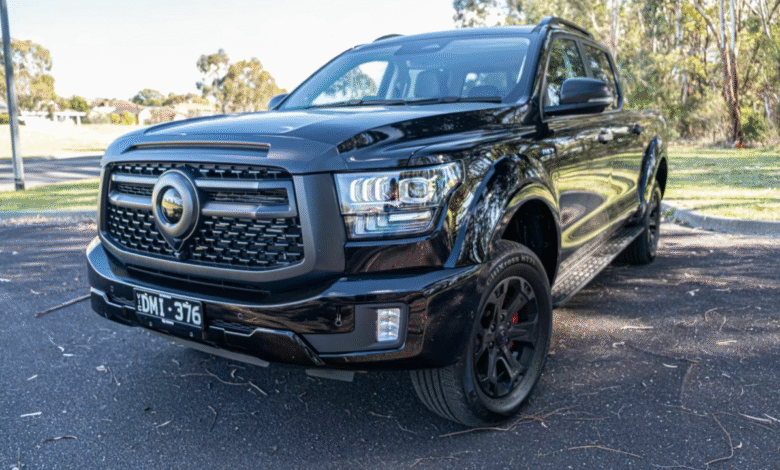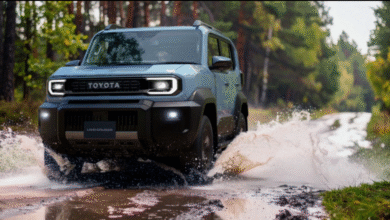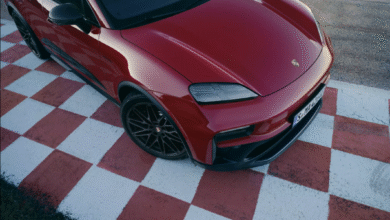GWM Cannon Alpha PHEV Ultra Review: China’s Hybrid Pickup Challenger

In markets like the United States, electric pickups have dominated headlines thanks to high-profile models like the Rivian R1T, Tesla Cybertruck, and Ford F-150 Lightning. But despite the hype, sales have slowed, revealing a simple truth: many truck buyers aren’t yet ready to go fully electric. This is exactly where hybrid and plug-in hybrid pickups are starting to shine, offering the perfect balance between efficiency, performance, and practicality.
Australia, in particular, is becoming a hotbed for electrified pickups. Toyota offers hybrid versions of the Tundra and Tacoma, Ford sells hybrid variants of the F-150 and Maverick, and now, more plug-in hybrid trucks are hitting showrooms. Beyond the BYD Shark 6, two new players are challenging the market: the Ford Ranger PHEV and the GWM Cannon Alpha PHEV, the latter being the model we recently tested in its flagship Ultra trim.
Under the Skin : Shared DNA with the Tank 500
The GWM Cannon Alpha PHEV shares much of its architecture with the Tank 500 SUV, a model that surprised many with its refinement and luxury at a competitive price point. Under its muscular skin, the pickup combines a 2.0-liter turbocharged four-cylinder petrol engine with an electric motor producing 120 kW (161 hp) and 400 Nm (295 lb-ft).
Add in the combustion engine’s 180 kW (241 hp) and 380 Nm (280 lb-ft), and the combined output rises to an impressive 300 kW (402 hp) and 750 Nm (553 lb-ft). That’s more torque than the BYD Shark 6 (650 Nm) and leagues ahead of the Ford Ranger PHEV (697 Nm), giving the GWM a significant edge in pulling power.
Its 37.1 kWh battery pack is another standout, offering up to 115 km (71 miles) of all-electric range — far more than most plug-in hybrid pickups currently on sale.
Pricing and Value Proposition
In Australia, the Cannon Alpha PHEV starts at AU$59,990 and stretches to AU$66,990 for the flagship Ultra trim. That makes it more expensive than the BYD Shark 6 (AU$57,900) but cheaper than the Ranger PHEV (AU$71,990). For buyers seeking a balance of luxury, performance, and practicality, the Cannon positions itself as a serious value contender.
Interior : A Luxury Cabin Disguised as a Pickup
Step inside, and you’d be forgiven for thinking you were in a luxury SUV rather than a workhorse truck. Much like the Tank 500, the Cannon Alpha PHEV’s cabin impresses with:
- A 12.3-inch infotainment display with wireless Apple CarPlay and Android Auto
- A 12.3-inch digital cluster paired with a head-up display
- Faux wood finishes, metallic accents, and soft-touch leather on the dash, doors, and console
- Comfort features including heated, ventilated, and massaging front seats, plus a heated steering wheel
- A wireless phone charger in the rear armrest, a feature rarely seen in pickups
The rear bench is equally spacious, offering heated and ventilated seats along with ample legroom, making the Cannon Alpha more family-friendly than many rivals.
On-Road and Off-Road Performance
Despite weighing in as a plug-in hybrid, the Cannon Alpha PHEV is surprisingly lively. Thanks to launch control, it can sprint from 0–100 km/h in just 7.0 seconds, putting it in line with some sportier diesel pickups like the Ford Ranger Raptor.
On-road manners are also refined. Unlike traditional body-on-frame pickups that ride harshly when unladen, the Cannon feels composed, smooth, and quiet. However, some drawbacks include:
- Noticeable rev hang when lifting off the throttle
- Occasional lag between electric and combustion power
- Real-world fuel economy averaging 11.5 l/100 km, far higher than the claimed 1.7 l/100 km
Charging is straightforward, with the truck supporting up to 50 kW DC fast-charging. Owners will be able to complete many daily commutes in full-electric mode, dramatically cutting fuel usage.
Off-road, the Cannon Alpha PHEV holds its own with a low-range transfer case, front and rear locking differentials, and multiple driving modes. Its 3,500 kg towing capacity and 685 kg payload make it a capable workhorse as well.
Design Drawbacks : The Spare Tire Problem
The biggest downside? The spare tire. Since the battery pack occupies the usual space under the bed, GWM opted to mount the spare vertically inside the tray, covered with a plastic shield. Unfortunately, this creates rattling noises over bumps and feels like a cost-cutting solution in an otherwise well-executed truck.
Verdict : A Strong Contender in an Emerging Segment
The plug-in hybrid pickup market is still small, but the GWM Cannon Alpha PHEV Ultra shows enormous potential. With its luxurious interior, robust powertrain, and competitive pricing, it’s a strong alternative to both the BYD Shark 6 and the upcoming Ranger PHEV.
Yes, it has flaws — including powertrain calibration issues and the awkward spare tire placement — but overall, the Cannon Alpha PHEV represents a bold step for Great Wall Motors. With a seven-year unlimited-kilometer warranty backing it, it’s a truck that will tempt buyers looking for a mix of power, efficiency, and comfort in one package.




